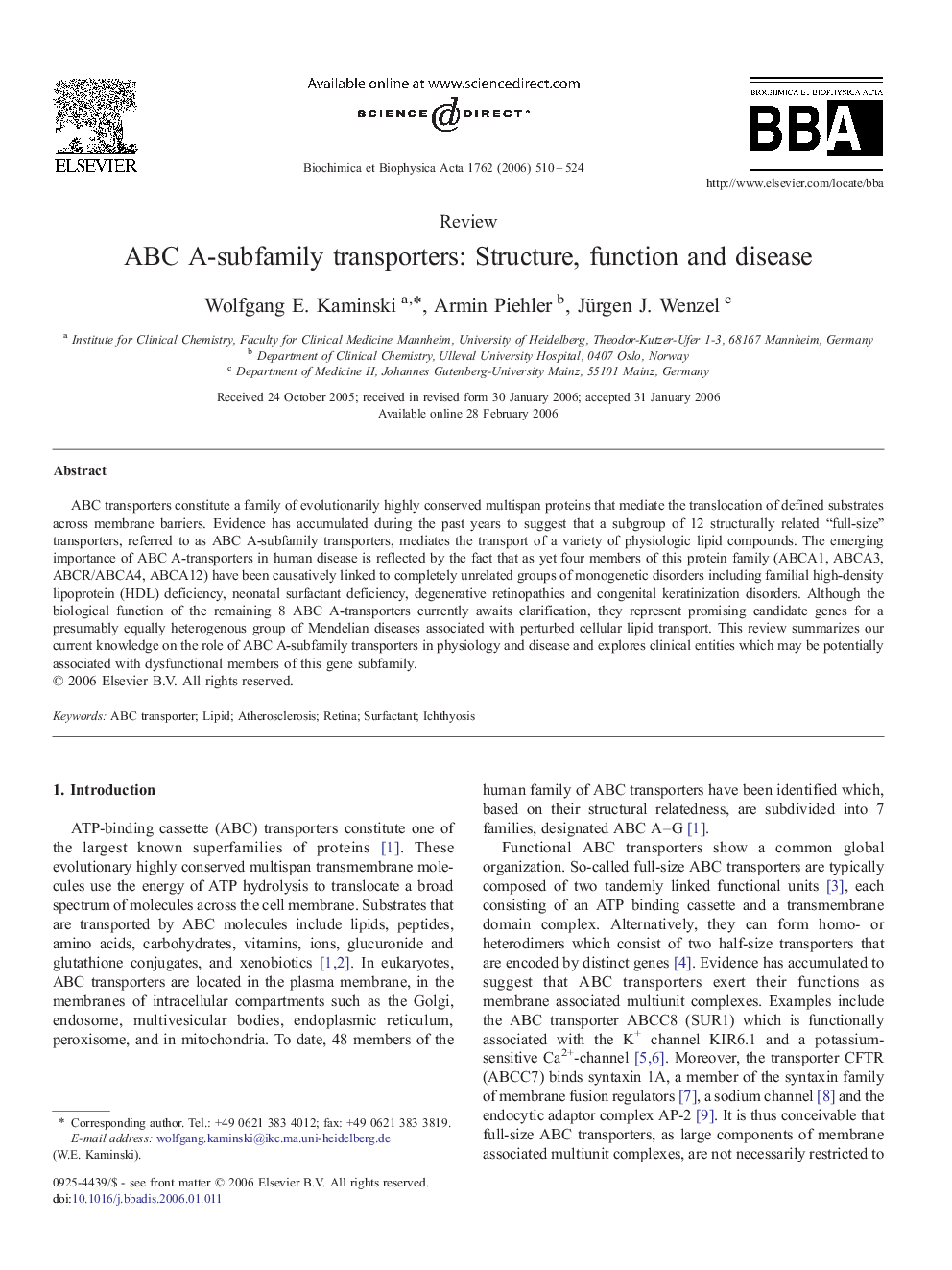| کد مقاله | کد نشریه | سال انتشار | مقاله انگلیسی | نسخه تمام متن |
|---|---|---|---|---|
| 1905958 | 1534752 | 2006 | 15 صفحه PDF | دانلود رایگان |

ABC transporters constitute a family of evolutionarily highly conserved multispan proteins that mediate the translocation of defined substrates across membrane barriers. Evidence has accumulated during the past years to suggest that a subgroup of 12 structurally related “full-size” transporters, referred to as ABC A-subfamily transporters, mediates the transport of a variety of physiologic lipid compounds. The emerging importance of ABC A-transporters in human disease is reflected by the fact that as yet four members of this protein family (ABCA1, ABCA3, ABCR/ABCA4, ABCA12) have been causatively linked to completely unrelated groups of monogenetic disorders including familial high-density lipoprotein (HDL) deficiency, neonatal surfactant deficiency, degenerative retinopathies and congenital keratinization disorders. Although the biological function of the remaining 8 ABC A-transporters currently awaits clarification, they represent promising candidate genes for a presumably equally heterogenous group of Mendelian diseases associated with perturbed cellular lipid transport. This review summarizes our current knowledge on the role of ABC A-subfamily transporters in physiology and disease and explores clinical entities which may be potentially associated with dysfunctional members of this gene subfamily.
Journal: Biochimica et Biophysica Acta (BBA) - Molecular Basis of Disease - Volume 1762, Issue 5, May 2006, Pages 510–524